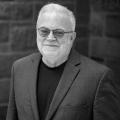George Herbert Walker Bush was a man and a political leader that most everybody liked, if you listen to all the reflections about the 41st president of the United States who died last Friday. “One of the nicest and most decent men I ever knew,” testified leaders from across the political spectrum, “a person with genuine character and dignity.” The thousands of personal notes and thank-you cards he wrote to people, especially those in difficult situations, showed his deep feelings of empathy and compassion. Many say he was clearly guided guided by moral and religious principles. I have been especially struck by how many people have spoken about his characteristic humility throughout his career as one of the most powerful leaders of the most powerful nation in the world. He said that modesty was “inculcated” into him by his mother, and George and his beloved wife Barbara worked to make this a family trait. He hated bragging and people who did. Instead, he continuously lifted the values and calling of service and even the commitment to sacrifice for others and his country.
All the media reports and memorials on the passing of Bush 41 have listed his many missions over his 94 years. The commentaries have recounted his careers at most every level of elected office — from bottom to top — envoy and ambassador to countries and the world, director of institutions like the CIA, chair of his political party, and many post-presidential missions, like bringing humanitarian aid after disasters.
But I believe the remembrance of the life of George H. W. Bush this week and going forward give this man one final mission: to demonstrate the values that reveal who genuine leaders are, contrasting the values (or lack thereof) that reveal who are not. What does a leader do or not do? What are the markers of true public service that differentiate it from public exploitation?
At his passing, the reflections on Bush’s life and leadership could paint a clear contrast at such a historically dangerous moment in American life — a moment in which we grapple for words like decency, character, dignity, empathy, humility, service, sacrifice, or morality to assign to those in leadership.
It’s true that the Bushes were entrenched in the elitism of American patrician leadership — with all the injustice and hypocrisy that contains. Columnist E.J. Dionne said, “Nevertheless, our country would be better if elites were as public-spirited as Bush was and if conservatism reflected his Eisenhower style of balancing capitalism with public action, striving with compassion.”
This week is revealing an inescapable contrast between personal and public values and practice by a passing president and the ruling one. If we allow that to become a national reflection, and even a national moment of prayer and repentance, might this week help us save the soul of our nation?
Now let’s be clear here: George H. W. Bush was no saint, and, as Dionne put it, “saints don’t win elections.” The 1988 campaign, in which he won the presidency, was an ugly one against Michael Dukakis. The infamous Willie Horton ad deliberately exploited racial fear and hatred for political gain, and even Lee Atwater, the dirty politics expert who led Bush’s campaign, ultimately apologized for it in a death bed repentance. That kind of Republican use of racism is historically connected to where we have come today with Donald Trump — and Trump’s racial tribalism has now taken over the Republican Party.
Bush often went along with Republican politics as a loyal systems guy. As Todd Purdam said in the Atlantic:
In his first Senate race, in Texas in 1964, he abandoned his family’s moderate Republicanism to join Barry Goldwater in opposing the landmark federal Civil Rights Act as an invasion of privacy rights. But he agonized in a letter to a Jewish friend and supporter: ‘What shall I do? How will I do it? I want to win, but not at the expense of justice, not at the expense of the dignity of any man—not at the expense of teaching my children a prejudice I do not feel." Just four years later, as a member of Congress from Houston, he bravely supported the 1968 Fair Housing Act over the opposition of many of his constituents.
Bush later supported important updates to the Clean Air Act. The Americans With Disabilities Act was perhaps his most important domestic accomplishment, marked by one of the largest bipartisan bill signing ceremonies in American history. Democrats who were there reminded us this week of what Bush said: “Let the shameful walls of exclusion finally come tumbling down.”
Bush’s greatest contribution came in the foreign policy arena. His characteristic humility and his mother’s instructions against bragging helped Bush to manage the very complicated and dangerous process of ending the Cold War. He wasn’t one to spike the football or dance on the falling Berlin Wall; his skills at building relationships were certainly helpful, as he and Mikhail Gorbachev negotiated a tremendous change in the world order without bloodshed.
Political disagreements, even substantial ones, persist this week as we remember the oldest living president in American history. But the personal values, family values, and moral values of the man being memorialized today in the National Cathedral are overriding politics this week. Because the Bush family is so hospitable and honorable, the current president was invited to the service — but he was not invited to speak. Instead he was in the presence of four other living presidents. I wonder if this very awkward, even perhaps painful day for him, might cause some personal reflection on his part about contrasting values. For our nation and our nation’s leaders we are always instructed to pray and hope for redemption.
Got something to say about what you're reading? We value your feedback!








